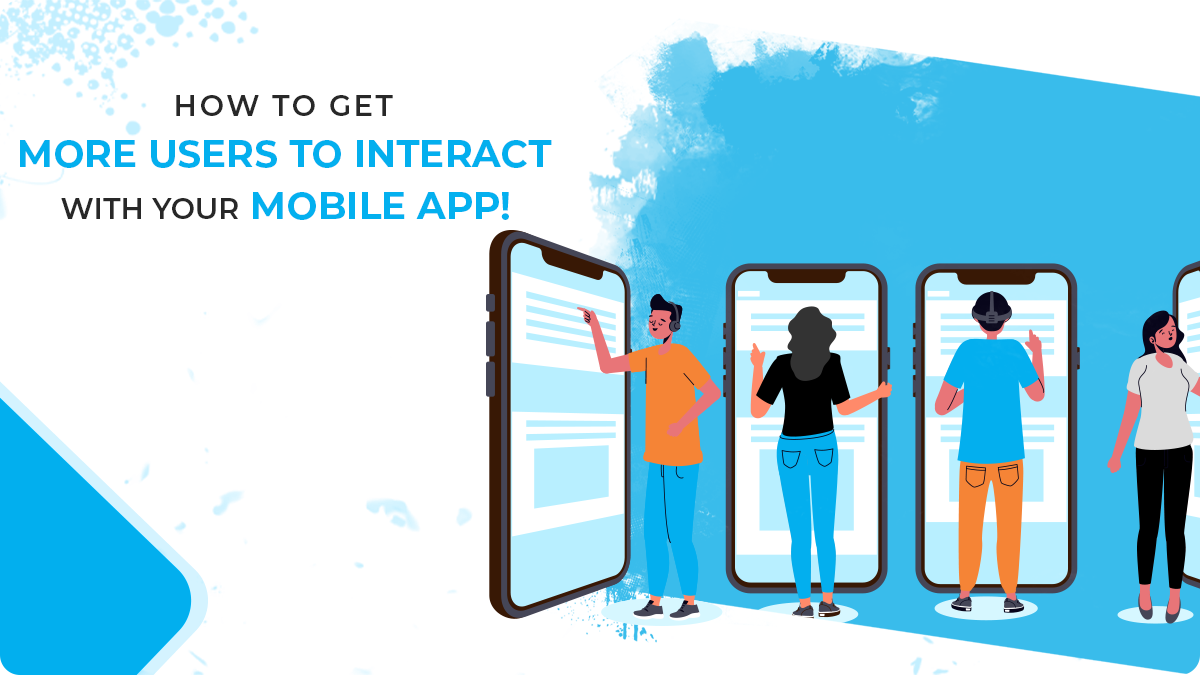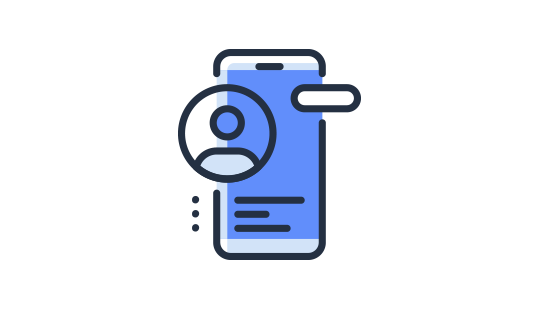In today’s digital landscape, consumers have high expectations for the quality and performance of websites and mobile apps. Providing a top-notch app experience is crucial for building and maintaining a long-term relationship with your audience.

Making the perfect app is simply the beginning of a long journey:
Nearly 80% of mobile apps, according to the CIO survey, are deleted after their initial use, underscoring the significance of taking many important elements into account before designing an app. Tracking mobile app engagement and utilizing data is crucial for making informed decisions and driving conversions.
By leveraging data effectively, you can make data-driven decisions, optimize your app’s performance, and maximize conversion opportunities. Regular monitoring and analysis of crucial app engagement metrics enable you to identify actionable insights, refine your app strategy, and improve the overall user experience, leading to increased conversions and business success.
First, let’s define what “app engagement” is.
App engagement refers to the level of user interaction, involvement, and activity within a mobile application. It measures how users interact with an app, how frequently they use it, and the depth of their interactions. High app engagement indicates that users find value in the app and regularly interact with its features, content, and functionalities.
App engagement metrics can include:
Session Duration: The length of time a user spends actively using the app in a single session.
Session Frequency: The number of times users open and use the app within a given time period, such as a day or a week.
Screen Views: The number of screens or pages users navigate through within the app.
Actions and Interactions: The specific actions users take within the app, such as tapping buttons, submitting forms, making purchases, or sharing content.
Retention Rate: The percentage of users who continue to use the app over time, indicating their sustained engagement.
Conversion Rate: The rate at which users complete desired actions or goals within the app, such as signing up, making a purchase, or subscribing to a service.
Push Notification Response Rate: The percentage of users who interact with push notifications by opening the app or taking the desired action.
Social Sharing and Referrals: The extent to which users share app content or refer the app to others, indicating their level of engagement and advocacy.
App engagement is crucial for app success as it directly impacts user retention, customer satisfaction, and ultimately, the app’s business objectives. Higher app engagement often correlates with increased user loyalty, improved monetization opportunities, and a stronger brand presence.
To enhance app engagement, app developers and marketers focus on delivering a seamless user experience, providing valuable content or features, personalizing the app experience, implementing gamification elements, and regularly updating the app based on user feedback and data analysis. By continuously striving to optimize app engagement, developers can foster user loyalty, attract new users, and drive the long-term success of their mobile applications.
Read more: Best Strategies for Mobile App Monetization to Watch in 2023
Keeping users engaged with your app is crucial for its success and user retention. Here are some suggestions to help you achieve that:
Provide a Smooth Onboarding Experience: Make the initial user experience seamless and intuitive. Guide users through the key features and benefits of your app, ensuring they understand how to use it effectively from the start.
Streamline User Interface (UI) and User Experience (UX): Design an intuitive and visually appealing interface that is easy to navigate. Ensure that the app’s functionality is user-friendly, with clear calls to action and logical flow. Aim for simplicity and minimize any unnecessary steps or complexities.
Personalize the User Experience: Implement personalization features to tailor the app experience to each user’s preferences and behavior. Provide personalized recommendations, content, or notifications based on their interests, location, or previous interactions with the app.
Gamification Elements: Incorporate gamification techniques to make the app more engaging and enjoyable. Add elements such as rewards, achievements, challenges, or leaderboards to motivate users and create a sense of accomplishment.
Push Notifications and Alerts: Send timely and relevant push notifications or alerts to keep users informed about updates, new features, or exclusive content. However, be mindful not to overdo it, as excessive notifications can lead to annoyance and app abandonment.
Regularly Update and Improve: Continuously enhance your app by releasing updates and adding new features. Show users that you’re actively working on improving their experience and addressing their needs. Respond to user feedback and reviews, and implement relevant improvements based on their suggestions.
Offer Offline Functionality: If possible, design your app to have offline capabilities. Allow users to access certain features or content even without an internet connection. This way, they can still engage with your app in situations where connectivity is limited.
In-App Support and Assistance: Provide in-app support features such as FAQs, tutorials, or chat support to help users with any questions or issues they may encounter. Clear and accessible support options contribute to a positive user experience and reduce frustration.
Social Sharing and Integration: Enable users to share their achievements, progress, or content from your app on social media platforms. This fosters community and allows users to showcase their experiences to their friends and followers.
Offer Incentives and Loyalty Programs: Implement loyalty programs or incentives to reward and retain loyal users. This can include discounts, exclusive content, or special perks that encourage users to stay engaged with your app.
Analyze User Data: Utilize analytics tools to gather insights about user behavior, preferences, and engagement patterns within your app. This data can help you understand user needs better and make data-driven decisions to optimize the app’s performance and engagement levels.
Remember, keeping users engaged requires a continuous effort to provide value, optimize the user experience, and respond to user feedback. By implementing these tips and regularly evaluating and improving your app, you can enhance user engagement and increase user satisfaction.
Conclusion:
User engagement is crucial for the success of any app or platform. Satisfied users continue using the app themselves and recommend it to others, contributing to its growth. On the other hand, unsatisfied or irritated users are more likely to stop using the app and may even share their negative experiences with others, leading to a potential loss of users.
How Can USS LLC Help You Create a Highly Engaging App for Your Business?
Top digital online and mobile app development company USS LLC is renowned for its clearly defined process and step-by-step technique to deliver above and beyond expectations. We are committed to keeping the user experience of your app at the forefront of its systems through the usage of our top-notch development methodologies.
Our clientele includes some of the most well-known international companies in a variety of industry verticals, such as Rx Valet, Shield PBM, Simple Scripts, and Easy Everyday English.
So what are you waiting for? To discuss your next app concept and get started, get in touch with our experts!
